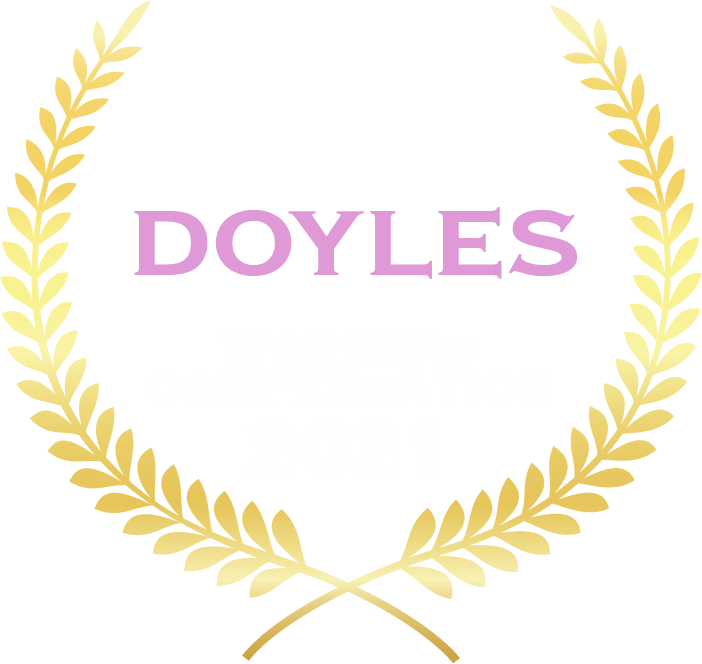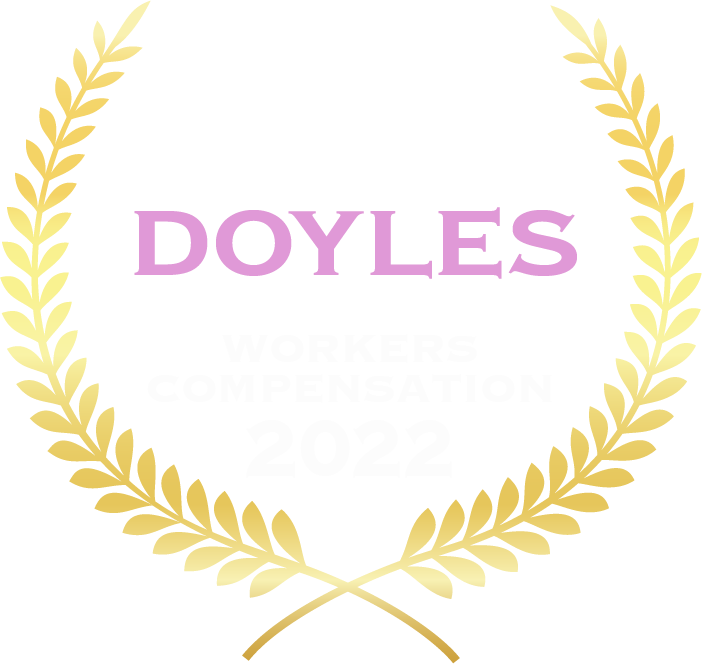Every year a significant number of people in Australia visit hospital emergency departments having suffered a head injury. While the majority of these people will experience no lasting effects or significant injuries, many others may be left with Traumatic Brain Injury (TBI) or damage that can have a devastating and lasting impact on their lives.
It is often hard to understand what the next steps are if you have been injured.
As personal injury lawyers, we often deal with brain injuries that result from work or transport accidents, or public and medical negligence in Victoria. To help you get started we have created this article to guide you through the essentials of seeking compensation after suffering a brain injury.
If you or someone you know is seeking compensation for a brain injury, read on to find out more on where you stand, what your next steps are and if you may be entitled to compensation.
Types of brain injuries – acquired or traumatic
There are two types of brain injuries: Acquired Brain Injury (ABI) and Traumatic Brain Injury (TBI).
What is a Traumatic Brain Injury (TBI)?
A Traumatic Brain Injury is an injury by an external force that causes damage to the brain.
If you have had an accident where you were struck in the head and suffered a loss of consciousness – whether for a second or much longer – there is a chance you have a TBI. These range from mild to severe and can manifest in many different ways.
Our expert lawyers engage a panel of expert Neurologists, Neuropsychologists and Psychiatrists to help assess and diagnose the existence of a TBI.
Most common causes of TBI
There are many different ways individuals can suffer a Traumatic Brain Injury. The most common types we see relate to the following:
- Road traffic accidents
- A workplace accident
- A slip or fall in a public or private place
- An incident involving a blow to the head or a sudden jolt to the body.
Traumatic Brain Injury (TBI) can affect you at different times after impact.
- Some traumatic brain injuries are considered primary, which means the damage is immediate.
- Some traumatic brain injuries are considered secondary, which means they occur gradually over the course of hours, days, or weeks. Secondary brain injuries are the result of problems that occur after the initial head trauma.
What are the symptoms of a Traumatic Brain Injury (TBI)?
Traumatic Brain Injury (TBI) can lead to the following:
- Temporary or short-term problems with normal brain function (including how the person thinks, understands, moves, communicates, and acts)
- Severe and permanent disability
- Death.
Disclaimer: Please note that the content of this article serves educational and informational purposes exclusively and is not intended as a substitute for medical or health advice. Always seek guidance from a qualified healthcare provider for any queries related to medical conditions.
It’s important to note that not all head impacts or accidents result in a Traumatic Brain Injury (TBI).
What is “Acquired Brain Injury”?
An Acquired Brain Injury refers to any injury to the brain after birth and includes Traumatic Brain Injury as well as injuries not occurring from an external force. The symptoms are often very similar to those of traumatic brain injury but there are differences between both that make coping with acquired brain injury complicated.
What is an example of an Acquired Brain Injury?
Examples of an Acquired Brain Injury include:
- Strokes
- Tumours
- Brain haemorrhages
- Infections
- Lack of oxygen to the brain
- Encephalitis.
Can I claim compensation for a brain injury?
Yes, in the State of Victoria, if you have suffered a serious brain or head injury that has resulted from the negligence of an employer, another driver, or a third party, you may be entitled to potential compensation. In some circumstances, this can include a claim for Common Law damages.
Depending on the circumstances of your injury, you may also be eligible for statutory benefits (such as WorkCover or TAC entitlements).
Who can make a claim for a brain injury?
In the state of Victoria, if you have suffered a Traumatic Brain Injury (TBI) or an Acquired Brain Injury (ABI) due to the negligence or careless act of a third party, then you can make a claim for a brain injury.
As personal injury lawyers, we handle claims for brain injuries resulting from car accidents, slips, trips, or falls in public or private places, workplace trauma, medical negligence, or other instances of fault.
If a person has been injured, they should first seek their entitlements under the relevant statutory schemes (Workcover and TAC) where possible.
Worker Compensation for Brain Injuries
The Victorian Workers’ Compensation scheme is managed by WorkSafe and is known as WorkCover.
In Victoria, Australian workers who suffer a workplace injury or trauma including brain injury may be entitled to two types of lump sum payment. These are called impairment benefits and common law claims.
A common law damages claim is a lump sum payment that recognises the pain and suffering, and, in some cases, economic loss resulting from an injury caused through another party’s negligence.
A common law damage claim differs from an impairments claim, as it requires you to show and prove the negligence or breach of duty of care. In the context of workers compensation, an injured Victorian worker must prove that the negligence of their employer or a third party has caused their injury or condition for the claim to succeed.
Failure to prove the negligence will result in the claim for common law damages being unsuccessful.
Our helpful, informative workers compensation payout guide explains everything you need to know about workers compensation and lump sum settlements in Victoria.
Knowledge is vital when trying to retrieve the maximum compensation you deserve.
We strongly you read this guide and obtain legal advice from an expert workers compensation lawyer to see what you could be entitled to if you have suffered a brain injury at work.
Call our WorkCover lawyers today.
We can fight your corner, act on your behalf, and help navigate the challenging lump sum benefits claims process and the legalities behind making a claim.
TAC Claim for Brain Injuries
In Victoria, the Transport Accident Commission (TAC) provides no-fault compensation, support and benefits for persons who have suffered a brain injury in transport accidents. A TAC claim is a legal claim that allows individuals who have been injured in a transport accident covered by the scheme to seek compensation for their injuries, necessary medical treatment, related expenses and losses associated with their injuries to help recover from a road accident injury.
Common examples of a TAC Claim include:
- An accident involving two vehicles
- An accident involving a vehicle and a pedestrian
- An accident involving a cyclist and an opening door of a car
- Where a cyclist swerves to miss a car that pulls out in front of him or her and consequently falls off the bike
- Passengers injured on or by a train, bus or tram.
You may be entitled from the TAC weekly payments of lost wages and reimbursements of the costs of the medical treatment and expenses that are required to help you recover from your injuries.
If your injury is permanent and/or occurred as the result of negligence of another party you can make a claim for lump sum compensation, such as an Impairment Applicant or claim for Common Law damages.
For more information, our Minor and Major Car Accident Procedure in Victoria and What is a TAC claim? guides can help you understand your next step if you have suffered a brain injury during a road accident and the stages of a TAC claim.
While making a TAC claim as soon as possible after your injury is important, it’s equally important to talk to a road accident lawyer for information about your full TAC claim eligibility.
Although it is not required by law to hire a lawyer following a car accident, whether it’s minor or major, it is important to consider the benefits of seeking legal representation. For example, some injuries may not always be immediately apparent, and dormant injuries that surface later can cause complications, resulting in a complicated claim. By seeking the assistance of a skilled TAC lawyer, you have someone on your side who can navigate the complexities of a TAC claim and can inform you of the laws surrounding motor vehicle accidents in Victoria.
A personal injury lawyer with specialised knowledge in TAC claims is also well-versed in specific Victoria law and can provide the guidance you need to protect your rights and pursue fair compensation. They can advise you on how to best fill out the necessary paperwork to maximise your chances of success, alert you to the evidence you will need to provide, and help you understand what compensation you may be entitled to.
If you want to speak with a road accident law specialist, contact us at 1800 85 30 85.
Public Liability Claims for Brain Injuries
A public liability claim is the potential compensation you may be entitled to if you suffered a slip, trip, fall or accident in a public or private place due to negligence or through the fault of a third party or another entity.
If you are a victim of an accident within a public place due to another person’s negligence resulting in harm, loss, or damage that has resulted in a brain injury, you may be entitled to claim compensation from the responsible party.
You may be entitled to:
- Pain and suffering damages
- Please refer to our compensation following a slip and fall guide that outlines the requirements to pursue damages for your pain and suffering.
- Please refer to our compensation following a slip and fall guide that outlines the requirements to pursue damages for your pain and suffering.
- Past and future medical and associated expenses, including any help you need at home
- Keep copies of any receipts for costs incurred as a result of your injury.
- Past and future loss of earnings, including superannuation
- Create a logbook of all the dates that you were unable to work due to your injury.
- Gratuitous Care
- You can claim unpaid domestic care, provided it has been for at least 6 months or 6 hours per week.
Strict time limits apply, and it can often be difficult to identify who was responsible for your accident, and whether you have a right to make a public liability claim.
This is why we encourage you to speak with an expert in as soon as reasonably practical after your accident.
Find out where you stand. Speak to our public liability lawyers today.
In our experience, clients receive the most benefit during the legal process when they work with a lawyer who actively listens to their stories and understands their concerns about the legal process.
That’s why at Maxiom Injury Lawyers, you will be partnered with an Accredited Specialist in Personal Injury Law who is accessible when you need it and will advocate for your rights, be your voice and ensure you receive your full and fair entitlements. We are also committed to keeping legal fees low so that you receive the maximum amount of compensation.
Find out where you stand. Speak to our lawyers today.
How much compensation do you get for brain injuries?
The amount of compensation for a brain injury is dependent on the severity of the consequences.
Depending on the severity of the injury and the ongoing consequences you might be able to claim compensation for non-economic loss and economic loss.
- Economic loss includes:
- Loss of past and future earnings / wages
- Medical expenses and related expenses
- Rehabilitation.
- Care and domestic assistance including modifications to the home or other practical aids.
- Non-economic loss includes:
- Pain and suffering
- Emotional suffering
- Mental impact
- Loss of enjoyment of life.
For a brain injury, the costs of care and future economic loss can be two of the largest areas of damage awarded to a person.
The following factors will be largely considered when assessing the impact of the brain injury:
- The age of the individual
- The “consequences” as a result of the injuries
- The treatment undergone to mitigate the loss
- The present treatment and medications are taken to manage the injuries
- Medical evidence regarding the debilitating nature of the injury
- Any pre-existing injuries or post-event injuries.
As the range of consequences can vary based on the severity of injury and these claims require careful consideration of a person’s circumstances it is best to seek advice from a personal injury expert as to your prospects and potential range of compensation.
The process for a brain injury claim
The process of preparing for a brain injury claim will vary depending on the circumstances and how you suffered the trauma for example if your brain injury was a result of a traffic incident, at work or a slip or fall.
What does the brain injury claim process after a road accident in Victoria look like?
The process for a brain injury after a car accident in Victoria under the Transport Accident Commission (TAC) scheme is as follows:
- Car accident occurs
- Obtain information about the other party involved in the road accident, including
-
- Full name and address
- Contact phone numbers
- Licence and registration details
- Insurance information
- Vehicle make and model
- Take photographs of the damage to your vehicle and the accident scene
- Obtain contact details of witnesses, including requesting copies of any photos and/ or videos taken
- Dial 000 to arrange for necessary Emergency Services teams (Police, Ambulance, Fire) to attend the scene of the accident
-
- If not necessary, at a later stage you must:
-
- Seek medical attention and help for assessment of your injuries
-
- Report the accident to the police / relevant public transport authority (if the accident occurred on public transport) to acquire reports for the purposes of your insurance claim
- Contact your Insurer and provide details of other parties and witnesses to the event
- Make a TAC Claim online or lodge via the hospital providing urgent medical treatment
- Seek legal advice and representation from an expert road accident injury compensation lawyer in Melbourne who can advise you on the best ways of proceeding, including whether you should pursue an impairment application and/or claim for Common Law damages.
- Attend a medical assessment for an independent evaluation of your injuries.
How long does a road injury claim take?
A TAC Common Law Claim for a road traffic accident takes on average 18 months to settle.
To be able to maximise your entitlement, it is important that you understand what the best procedure after a minor or major car accident is in Victoria as well as consult a road accident lawyer who can help you navigate through the entire process.
Is there a time limit to lodge a brain injury TAC claim?
Yes, there is a time limit when making a TAC claim. You must lodge a claim with the TAC within 12 months of the date of injury. The TAC have discretion to allow claims after 12 months but before 3 years. After 3 years, the TAC is unable to accept your claim.
It is therefore critical that you lodge a TAC claim and get legal advice as soon as practicable after an accident.
Where your injury has and will continue to have a significant impact on your life, you may be able to make a common law claim. The time limit for a TAC Common Law claim is within 6 years of the date of the injury. This payment is in recognition of the impact the injury has and will continue to have on your life.
Here is more information on whether or not you have a valid TAC claim.
What does the brain injury claim process after a trip, slip or fall in a public or private place in Victoria look like?
The process for a brain injury following a slip, trip or fall in Victoria is as follows:
- Seek medical attention – Call an ambulance if necessary and consult your doctor
- Report the accident – Immediately report the accident to the manager of the building or business where applicable
- Take photographs of the accident location and of your injuries
- Obtain details of any witnesses – Obtain their contact details and information including
-
- Full name and address
- Contact phone numbers
- Copies of any photos and/ or videos taken
- Seek legal advice and representation from a personal injury lawyer in Melbourne
- Attend a medical assessment for an independent evaluation of your injuries and, where applicable, to determine whether your injury meets the definition of ‘Significant Injury’ under the Wrongs Act 1958 (Vic) (as amended).
- If possible, engage the third party in negotiations in an attempt to resolve your claim.
- If your matter is unable to resolve informally, issue Court proceedings and prepare for mediation and hearing.
Is there a time limit to lodge a brain injury public liability claim?
Yes, you must issue Court proceedings within three years from the date of discoverability of your cause of action. This is, in most cases, three years from the date of injury.
You should get legal advice from our expert team to calculate when your Court proceeding must be issued by.
How long does a public liability claim take?
Public liability claims generally take between 12-18 months in general but can take longer depending on several factors, in our experience. However, how long a public liability claim takes often varies from claim to claim and individual circumstances.
What does the brain injury claim process after a workplace injury in Victoria look like?
The steps to make a workers compensation claim for a brain injury are as follows:
- Workplace injury / illness / accident occurs
- Claimant seeks medical attention and help
- Employee reports the injury to the employer or completes an incident report and provides it to their employer
- Claimant completes and lodges a worker’s compensation claim form.
- Claimant seeks legal advice and representation from a personal injury lawyer in Melbourne as to the lump sum options available to them based on the circumstances of their accident and the nature of their injuries.
Is there a time limit to lodge a brain injury workplace injury claim?
You should provide an incident report to your employer within 30 days of your brain injury. You should lodge a WorkCover claim as soon as practicable after sustaining an injury or illness at work.
That employer will pass your claim onto their Insurer within 10 days and the Insurer then has 28 days to determine the claim in most cases.
How long does a workplace injury claim take?
For WorkCover claims lodged with a Certificate of Capacity, the insurer must determine the claim within 28 days of receiving it. After this time, if the insurer has not made a decision, the claim will be deemed as accepted.
If you suffer from an injury at work, it is recommended that you seek the guidance of No Win No Fee lawyers as soon as possible to help you gather all the documentation and materials required to ensure that you receive the full benefits that you are rightfully entitled to.
What factors are considered when assessing brain injuries?
In order to pursue Common Law damages for injuries, you need to establish that you have suffered a ‘serious injury’.
The relevant legislation provides four classes of serious injury. For brain injuries, in most cases these can be assessed under permanent serious impairment or loss of body function.
The following factors will be largely considered when assessing brain injuries:
- The age of the individual
- The “consequences” as a result of the injuries
- The treatment undergone
- The present treatment and medications are taken to manage the injuries
- Medical evidence regarding the debilitating nature of the injury
- Any pre-existing injuries or post-event injuries.
An expert personal injury lawyer can help you navigate through the process, inform you of your rights and help you understand what you may be entitled to.
Do all brain injury cases end in a settlement?
No, all brain injury cases do not end in a settlement.
How do I get the most out of my compensation payout?
To get the most out of your compensation claim, you must put forward a solid case that demonstrates that your brain injury was sustained due to the negligence of the employer or a third party. An insurer will always try to pay the least compensation possible.
To file a strong case for the maximum compensation, you need to understand how to build evidence to support your claim and work alongside an expert negotiator.
Getting all the research and know-how is a great start, and if you’ve come this far in our guide, you’re on the right path!
How do you win a brain injury claim in Victoria?
There are five steps Maxiom Injury Lawyers suggest you take for a successful brain injury claim and to ensure you achieve the maximum compensation you deserve.
- Always keep the evidence. This includes photos, witness details, and every person involved during the process, including medical personnel. It is better to have the information and not need it than to need it and not be able to obtain it. So make sure you collect all the information, write it down, keep it in a safe, accessible space and get advice on how and when to use these details.
- Obtain the best medical care and all the correct medical proof you need from a registered medical practitioner. Keep all information, including medical records, medical reports, receipts, and travel expenses. Ensure these are ready and on hand.
- Don’t rush into a settlement. We understand wanting the process to be over as quickly and stress-free as possible, but this will not always result in the best outcome for you.
- Be as detailed as you need to be with your lawyer. No detail or information is too much. An expert lawyer will take all the details and information you have provided and let you know if any more information is required.
Most importantly- Get legal advice!
The benefits of working with a personal injury lawyer cannot be over-emphasised. Your lawyer has an in-depth understanding of insurance companies’ legal processes and tactics. Their role is to advise you on how to complete the necessary paperwork best to maximise your chances of success, alert you to the required evidence you will need, and help you understand what compensation you might be entitled to.
Talk to a no-win no-fee lawyer and provide them with all the information and details required. No question, concern, or worry is too much. A brain injury compensation lawyer will have dealt with similar cases and can help advise you on everything you need. Ask questions and get to know them personally. This is your workers compensation claim, and you are entitled to the maximum compensation and the best legal advice to help you win your case.
To get the most out of your compensation payout, you need a competitive and passionate legal representative with a high success rate who can help you navigate the legal procedures and cut through the bureaucratic red tape to get you the maximum compensation you deserve.
Who can help me with my brain injury claim?
Our team at Maxiom Injury Lawyers are passionate advocates of social justice.
In our experience, clients receive the most benefit during the legal process when they work with a lawyer who actively listens to their stories and understands their concerns about the legal process.
That’s why at Maxiom Injury Lawyers, you will be partnered with an Accredited Specialist in Personal Injury Law who is accessible when you need it and will advocate for your rights, be your voice and ensure you receive your full and fair entitlements. We are also committed to keeping legal fees low so that you receive the maximum amount of compensation.
Why Maxiom Injury Lawyers?
We win complex brain injury cases
Maxiom Injury Lawyers is proud to have taken on and won complex cases.
Maxiom Injury Lawyers is recognised as one of Australia’s leading personal injury lawyers.
Since the firm launched in 2018, Sach Fernando and his team have made a life-changing impact on the lives of close to 2,000 clients who have collectively been awarded over $100 million in compensation (correct as of June 2023).
Young worker with head injuries awarded $825,000 is one of the many cases we have fought for.
Find out where you stand
We can help you navigate the various insurance schemes and provide an avenue for you to pay for the treatment or rehabilitation you need to recover from your injury.
Contact Maxiom, we can help you on your path to recovery.
The path to recovery after an injury can involve significant stress and financial hardship. At Maxiom Injury Lawyers, you will work with a dedicated lawyer who will support you through the entire claims process and help you meet your recovery goals.
To start your recovery journey, you can contact us anytime via phone or an enquiry form. If you are not quite ready to speak to us, we also offer a Free Claims Check so you can find out if you are eligible to claim for your injury.











